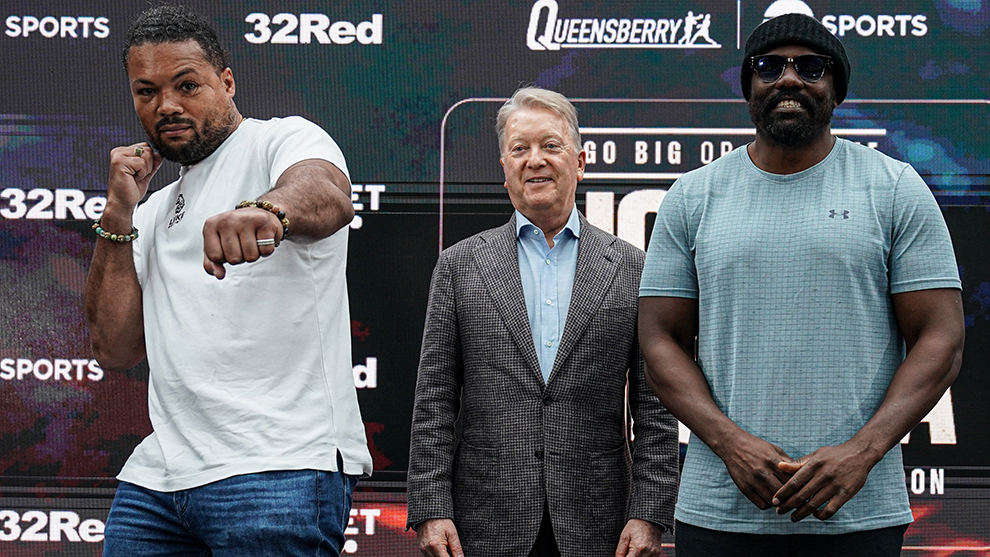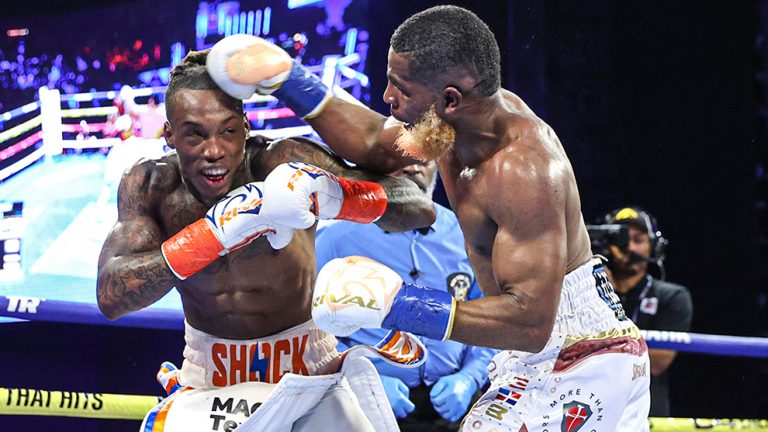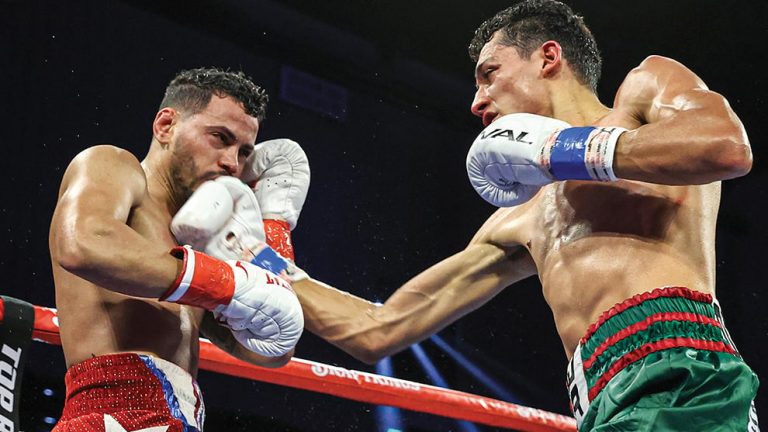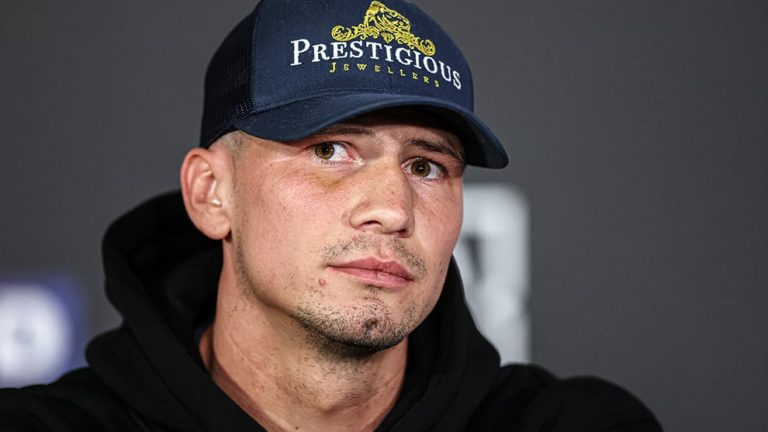The unlikely rise of Johnny Fisher can only be a good thing for British boxing
By Elliot Worsell
THERE is a moment in the 1994 film Pulp Fiction where Jules Winnfield, played by Samuel L. Jackson, attempts to explain his reluctance to eat pork – or “dig on swine” – by describing pigs as “filthy animals” in conversation with John Travolta’s Vincent Vega.
This then leads to Vincent Vega asking if his fellow hit man also considered dogs to be filthy animals, to which Jules Winnfield says, “I wouldn’t go so far as to call a dog filthy, but they’re definitely dirty. But a dog’s got personality. Personality goes a long way.”
Never is this truer, I have often thought, than in boxing. Show some semblance of a personality and you have a good chance of getting a job, particularly if you are able to self-promote and show off. Moreover, and more importantly, if you are capable of showing personality as a boxer, you are already halfway to cracking it; that is, making the kind of money most boxers will never see in their professional career.
Personality, after all, is what ensures a boxer stands out from the crowd. Good or bad, it gives them an identity and it gives fans a reason to watch them. Some will watch and follow a boxer because their personality is endearing, whereas other fans will hate-watch a boxer because their personality rubs them the wrong way. Whatever the impetus, though, so long as a boxer is being watched, they are equipped to make a living from this sport which has a habit of taking from boxers as much as it gives.
In the case of Johnny Fisher and Alen Babic, personality, it’s fair to say, has gone a long way. It has, for both heavyweights, done a lot of the heavy lifting so far in their respective careers, yet that is not to say these men cannot fight or that being popular is somehow a negative.
In fact, and on the contrary, the kind of following cultivated by both Fisher and Babic will no doubt be the envy of many of their peers. It will be the envy of peers because sheer popularity has created opportunities for both; which, in turn, has resulted in the pair already banking decent paydays.
Their next one arrives on July 6 at the Copper Box Arena, where they meet each other over 10 rounds. This, it goes without saying, is a fight plenty will deride and deem merely an example of two donkeys making a derby, and yet to see the fight solely in those terms is to miss the point entirely. To see the fight in those terms is to place too much emphasis on style or aesthetics and ignore the fact that fighters like Johnny Fisher, in particular, are a dying breed in British boxing.
“Johnny Fisher has long been the biggest individual ticket-seller in the country,” said Eddie Hearn, who will promote Fisher vs. Babic next month. “Already over 3,000 tickets have been sold from the front room of Big John (Fisher’s dad). Thank you for all of your efforts. We’re expecting around 7,000 at the Copper Box on July 6 and what an incredible atmosphere it is going to be.”
While one can maybe question the exact numbers being touted, nothing Hearn said is untrue. Like it or not, Fisher, with the help of his dad and the whole ‘Bosh’ brand (sorry), has built a fan base both he and his promoter can count on every time he sets foot in the ring. It is easily mocked, and frequently is, but in the game of pulling in crowds, Fisher nowadays represents something of a throwback from a bygone era. He does things the old-fashioned way, in other words.
The hard way. He gets out there, he sells tickets in person, and he is now reaping the benefits of all this effort. Even if his personality outweighs his talent, which you can argue it does, nobody can deny the importance of boxers like Fisher to both a promotional company and the sport as a whole.
It is easy to believe British boxing is thriving when you see so many British boxers appearing on fight cards in the Middle East these days, but this view is ultimately naïve, shortsighted. To thrive, to truly thrive, British boxing needs more fighters like Fisher, who, in a world of apps and streams, can still guarantee actual bums on seats.

We should never lose sight of the importance of this, regardless of how many British boxers travel to Saudi Arabia and find all their dreams have come true. Because, in the end, the ability to reach real people and sell tickets is something far more secure, and to some extent pure, than the alternative ways of generating revenue currently being explored and embraced in British boxing today.
Sometimes, and it’s only natural, we shoot at the wrong targets. For instance, just three weeks after Fisher and Babic collide at the ‘Copper Bosh’ (sorry, again), there is another heavyweight fight which, of the two, is surely more deserving of scrutiny and criticism. This one, which takes place at the O2 Arena and involves Joe Joyce and Derek Chisora, is not only a fight happening years too late but is a fight, one could argue, selling personalities at the expense of health.
For whereas the likes of Johnny Fisher and Alen Babic are both still relatively new on the scene, Joyce, at 38, and Chisora, at 40, have countless miles on the clock and considerable wear and tear. Worse than that, ‘War’ Chisora (34-13, 23 KOs) has, in recent years, made an ability to take punches and remain upright his entire personality, the upshot of which – money, opportunity – pales into insignificance when one thinks about its long-term ramifications.

Stephen Dunkley/Queensberry’s Joe Joyce and Derek Chisora




